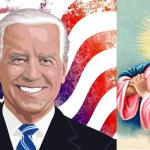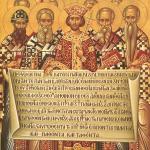A few headlines have said as much:
Pope slams capitalism as ‘dung of the devil’ is one example.
But if you read the context of the speech, you get a different impression:
The earth, entire peoples and individual persons are being brutally punished. And behind all this pain, death and destruction there is the stench of what Basil of Caesarea called “the dung of the devil”. An unfettered pursuit of money rules. The service of the common good is left behind. Once capital becomes an idol and guides people’s decisions, once greed for money presides over the entire socioeconomic system, it ruins society, it condemns and enslaves men and women, it destroys human fraternity, it sets people against one another and, as we clearly see, it even puts at risk our common home.
The target here is greed. A writer in The Daily Caller adds:
The pope said he was quoting Basil of Caesarea, a 4th century saint, bishop and theologian who preached at length on the subject of wealth. He has associated himself with Basil’s remarks at least twice before: in a private homily in September 2013 and in a large public audience in February of this year.
Basil is also widely quoted by Christian advocates for greater economic equality with a line addressed to the rich of his diocese: “The bread which you hold back belongs to the hungry; the coat, which you guard in your locked storage-chests, belongs to the naked.” And in another sermon from the year 368, he said that “by a certain wily artifice of the devil, countless pretexts of expenditure are proposed to the rich.”
The reference to “dung” is most likely a quotation from a letter in which he describes a rich man who decides to become a monk, undertaking the “worthy” change of “treating all your perilous property as mere dung.”
Each time he has quoted Basil, Francis associates the phrase not with money or capitalism itself, but with “idolatry.” The Catechism of the Catholic Church defines idolatry as worshiping “a creature in place of God,” including many inherently good or neutral things such as “power, pleasure, race, ancestors, the state, money, etc.
Sounds a lot like someone else I know.















